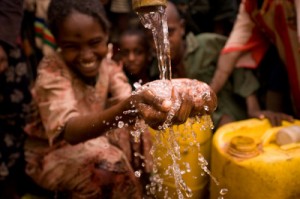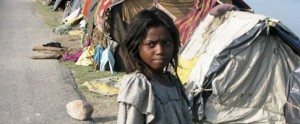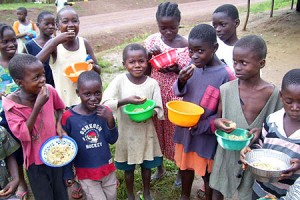Natural disasters and wars are among the most traumatic experiences not only for children but also for all people. One cannot predict when and what will strike, so there is no possibility to prepare for such misfortune. All around the world people experience earthquakes, floods, hurricanes and tsunamis. In times of crisis there is always an increased need for many supplies such as food, water and medicines. Currently, we are helping in the region of the Philippines, by providing them with much needed medications and access to mobile health centers.
It is essential to remember that each catastrophe is followed by certain kinds of consequences. The earthquakes, floods, hurricanes and tsunamis take away from people their homes and belongings so that new shelters are necessary. Of course there is also a need for food, water and medical supplies, especially for the injured. Floods may destroy the crops so the need for food may extend for a long period of time. Likewise, the droughts, that leave people with no access to food, are dangerous and also affect people’s health. Additionally, during floods there is high risk of diseases spreading, so a wide range of medications is needed. It is obvious that regions affected with any disaster require a lot of help from the outside. Populations are not able to cope without the aid of generous organizations.
Emergency relief actions conducted by AORF include many activities connected with water and sanitation, shelter, health and nutrition, and relief supplies. All of these efforts are vital for recovery in the days, weeks and months that follow these catastrophes.

Water and sanitation
One of the most important things is access to clean, drinking water and sanitation. Lack of such access may result in many dangerous waterborne diseases that can easily be prevented when safe water is available. It is vital to help people by sending them drinking water, sanitation specialists and equipment. It is also important to instruct them about what they should and should not do during the time of crisis.
Equipment is available to purify contaminated water. Portable water purification equipment can produce many liters of safe drinking water that is so important in maintaining a healthy community. Water storage and distribution systems help to maintain the source of clean water. Water-testing equipment helps to guarantee the safety of the purified water. It is also essential to educate the community in terms of health and hygiene.

Shelter
During many disasters people are often driven from their homes. They have no place to live, no belongings and no hope for improvement. It is a fundamental right for every person to have a place to live. Children need homes in order to feel safe and protected. Many foundations and organizations send shelter specialists and shelter materials in order to help people build temporary homes. Training in emergency responses is also of great importance for the communities in the affected regions.
The first thing to do is to define the scope of shelter needs. Next, the plan of action should be developed. Each community and each disaster has different needs and the response should be tailor-made in order to meet those needs. People need to receive shelter tool kits, tarpaulins, clothes, blankets and household items. All these things help them to start a new life despite the difficulties they face every day.

Health and nutrition
The need for health and nutritional supplies is one the most important needs during emergency situations. Every disaster carries along an increased demand for both food and medicine. People, especially the young ones, need to be well nourished in order to maintain good health and, with it, immunity against diseases. Medicines help in coping with possible disease outbreaks. It is vital to help malnourished children, as they are the most vulnerable in a community in crisis. By providing medicines, we help healthcare centers to reach as many sick children as possible and, at the same time, control the spread of disease.
Health education is extremely important. Educational information about diarrheal diseases, acute respiratory infections, acute malnutrition, tropical and waterborne diseases (for instance malaria), and vaccines will prevent disease and, at the same time, promote good family health.
